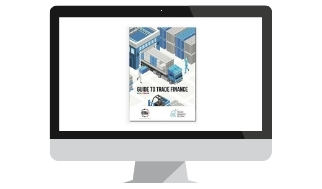What is a Creditor?
Creditors play an important role in international trade through the supply of goods and services to international traders. Credit is a key driver of international trade growth and innovation as it allows business success goods and services which they can trade with and pay for later. By provision of credit, creditor-debtor relations are bound to arise and in some cases debtors may not be in a position to repay their debts as and when fall due. It is therefore paramount to understand what rights creditors have in respect to securing payment of their monies owed by debtors.
Who is a Creditor?
A creditor is a person, either natural or legal (i.e. company, organisation or government) that claims on the services of another person or entity. A creditor can be considered as an entity to whom money is owed by another person or entity. In simple terms, a creditor can be said to be a person, business or entity that is owed money because the person or business provided goods or services or advanced money to another person, business or entity. Legal definitions go ahead to define a creditor as a person who has a claim against a debtor.
There are several types of creditors and the classification of creditors will depend on the nature of the debt involved and the context of the debtor-creditor relationship. Some of the different types of creditors are discussed below.
Trade Creditors
A trade creditor in business or international trade is a business or entity that owes another person or business money for goods and services. A trade creditor situation may arise where a supplier has delivered goods or services, but the purchaser has not paid for the goods and services. A trade creditor is a person or entity which has supplied goods and services but has not been paid for them.
- Secured Creditors
A secured creditor is a person or business who has advanced you money on the condition that they are entitled take possession over your assets or property in the event you failed to repay the debt or loan amount. In other words, a secured creditor has a legal right over your assets in the event of default in repaying the debt. This legal right could take the form of a legal charge, mortgage, debenture, pledge or lien over your property or assets. Debts or loans secured using any form of a legal right are referred to as secured debts. - Unsecured Creditors
An unsecured creditor is a person or business that does not have a legal right or security over the property or assets of a debtor. In this case, an unsecured creditor does not have any direct claim on the property or assets of the debtor. In simple terms, an unsecured creditor is a person or business entity that advances money to a borrower without obtaining the borrowers assets or property as collateral. This has a higher risk to the creditor because the creditor will have no assets or property to realise or recover in the event the borrower defaults in repaying the loan. - Preferred Creditors
A preferred creditor can also be referred to as a preferential creditor. A preferred creditor is a person or business that has a priority to receive payment from a debtor when the debtor declares bankruptcy. A preferred creditor is usually given priority of payment under the law and in most countries under the law of bankruptcy and insolvency. In the event of liquidation of the business, the preferred creditors are paid before other unsecured creditors receive payment. Examples of preferred creditors include employees who will receive payment for unpaid salaries and other remunerations. - Current Liability Creditors
A current liability creditor is a creditor who need to be repaid within twelve (12) months. Current liability debts are usually short debts which include debts like those incurred by credit cards. - Long-term Liability Creditors
A long-term liability creditor is one whose debts have a longer repayment term usually longer than twelve (12) months. Long-term liability debts include term loans from banks and other financial institutions. Long-term liabilities are also known as a long-term debt. These are debts owed to third-party creditors and usually have a longer repayment period of more than twelve (12) months. - Foreign Creditors
A foreign creditor is a person or business entity that resides in different from that where the debtor lives or resides or has his property or assets domiciled. In international trade, debt owned to a foreign creditor will be denominated in a foreign currency. - Domestic Creditors
A domestic creditor is a person or business entity that resides in the same country as the debtor or in the same country where the debtor’s assets or properties are domiciled. In most cases, domestic debt will be denominated in local currency.
Rights of Creditors
Rights of creditors are the legal and procedural provisions that have been put in place to protect creditors and guarantee their right to collect money they are owed from debtors. The law on the protection and rights of creditors varies from one country to another. Many jurisdictions have different options which may be exercised by creditors. These options include putting a lien on the property or assets of a debtor or effecting a seizure and forced sale of the property or assets belonging to the debtor or effecting a garnishment of the wages of a debtor, amongst other options. These rights that are available to a creditor will depend on the reason for which and how the debt is owed.
In the event of liquidation of a business, secured and unsecured creditors have different rights. Secured creditors rank first in the hierarchy of repayment after the costs of liquidation have been paid. Creditors with a legal charge over the debtor’s assets or property are entitled to be paid first once the debtor’s assets have been sold. Unsecured creditors will be the last to be paid after payment of the liquidator and the secured creditors.
Unsecured creditors have a right to attend creditor’s meetings where a company is being liquidated. This right also applied to secured creditors.
Another right that both secured and unsecured creditors have during liquidation of a business is the right to vote for the appointment of a liquidator. This right will be applicable only when the debtor is undergoing a creditor’s voluntary liquidation.
Another right that creditors have is the right to take back possession of goods they own that are in the hands of the debtor. The creditor needs to prove ownership of those goods to the liquidator upon which they can have them returned or reimbursed the value of those goods.
Creditors also have a right to claim interest on the outstanding debt. This right will be available in some circumstances and the creditors could have a provision in their contracts with the debtor for the levying of interest on any unpaid amounts. In such a case, interest can be claimed from the date of the debt up to the date the liquidation takes place.
A creditor also has the right to sue or institute judicial or legal process against the debtor to recover the owed amounts. A creditor can sue for the outstanding amount after which the can enforce a judgement obtained from a court of law against the debtor. This is right is however rarely exercised as it is costly and expensive.
Recognising Creditor Rights
Recognising and enforcing creditor rights is done through various legal mechanisms imposed by various countries. These legal mechanisms include bankruptcy and insolvency laws. Countries that are largely involved in international trade have put in place strong institutions and regulations for the purpose of protecting creditors.
Such institutions and regulations make up what is referred to as the insolvency mechanism, which has three main components. First, every robust insolvency mechanism must have strong institutions that are in charge of insolvency proceedings. These institutions are usually the courts of law. The second component is an operational system which is used to process cases and make decisions on insolvency matters. The third and final element is a system of recognising the integrity of the insolvency system.
Some countries ad jurisdictions have put in place informal systems such as out-of-court processes to dealing with creditor-debtor disputes. Informal processes are more likely to yield better results and outcomes for both the creditors and debtors. These informal systems include processes like voluntary negotiation or mediation. Informal dispute resolution mechanisms can also be employed to ensure that both creditor and debtor rights are protected.
Conclusion
In order to ensure your rights as a creditor are protected, it is important to establish the context or way in which the debt arose before taking steps to enforce your rights as a creditor. The nature of the debt, whether domestic or cross border will determine what actions a creditor can take against the debtor to recover outstanding debt. It is recommended that creditors and debtors engage in informal processes such as negotiations before taking specific legal action such as litigation or insolvency proceedings. These informal processes tend to be time saving and affordable where there is co-operation by the debtor.
Treasury Management Hub
1 | Introduction to Treasury Management
2 | Cash and Liquidity Management
3 | Liquidity and Risk Management
4 | Corporate Finance
5 | Cash Flow and Advanced Forecasting
6 | Treasury Management Systems
7 | Trade Finance Software
8 | Supply Chain Management
9 | Debtor
10 | Creditor
 Australia
Australia Hong Kong
Hong Kong Japan
Japan Singapore
Singapore United Arab Emirates
United Arab Emirates United States
United States France
France Germany
Germany Ireland
Ireland Netherlands
Netherlands United Kingdom
United Kingdom
















